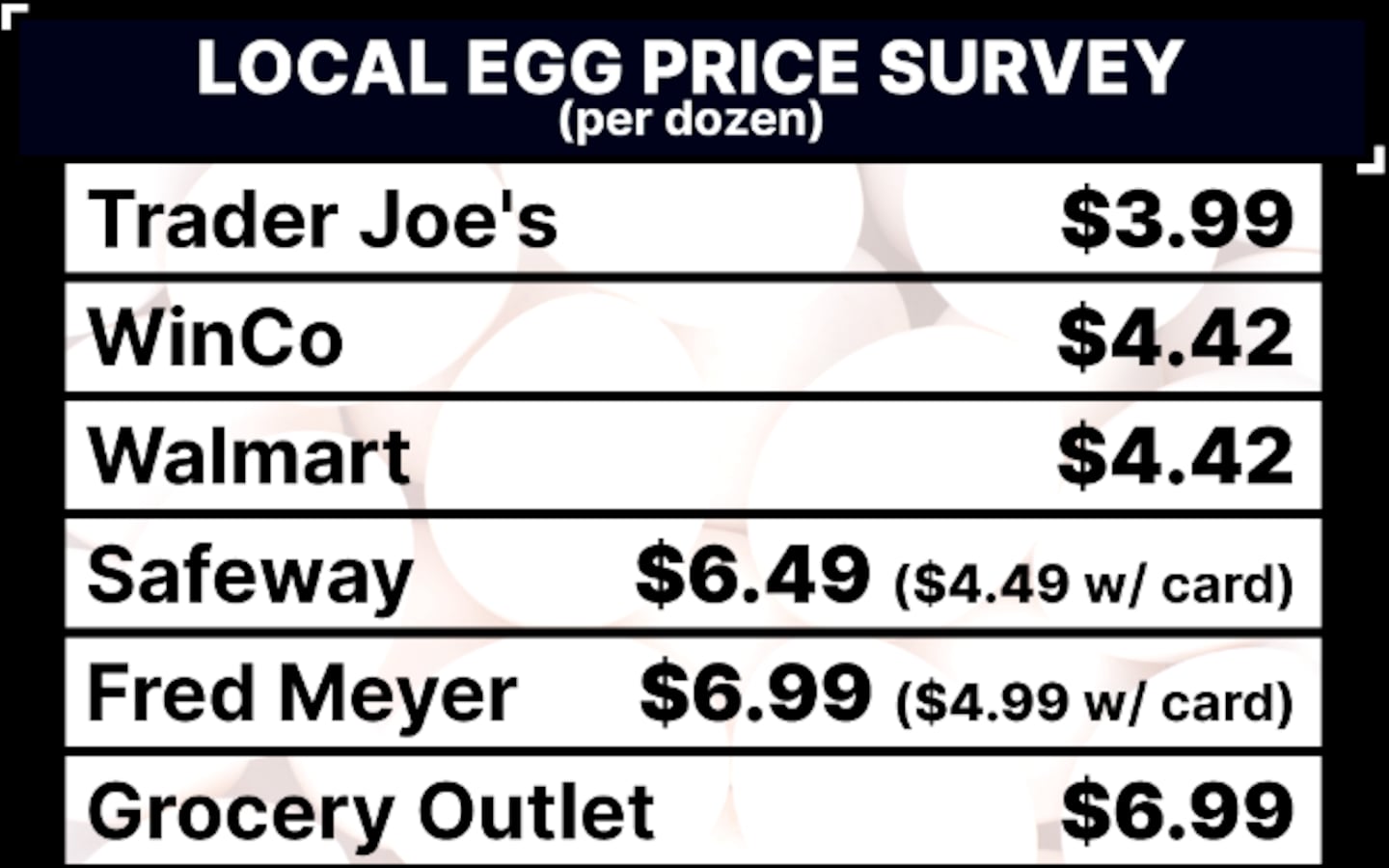KING COUNTY, Wash. — Egg prices are skyrocketing across Washington as the Avian Flu infects millions of laying hens across the country.
Nationally, the American Farm Bureau Federation reported an average price for a dozen eggs at $3.64 in November. The most recent average was tracked at $5.42 by the organizations.
Typically, egg prices rise in the holiday season due to the increased demand from holiday baking affecting the market.
“In this circumstance, we’re really talking about avian influenza. That is by far the biggest impact we’re having on egg prices right now,” Bernt Nelson, an economist with the American Farm Bureau Federation told KIRO 7.
Locally, prices have risen as well. Karla Navarro says the bulk box of five dozen she usually buys doubled in price from around $14 a few months ago to $29.99 when she purchased them today.
“After my kids’ soccer practices, it’s something to cook quickly for them. We use them a lot,” Navarro said.“We still need to buy them at the end of the day.”
Navarro’s situation speaks to the shock egg prices have on people, with Nelson describing it as one of the foundational food essentials.
“No matter what the price is, we still see demand for eggs. And so that’s one of those products that when we go to the grocery store, there’s a shock factor associated with it.” Nelson said.
KIRO 7 surveyed big-name grocery stores in Kent and Federal Way to find the cheapest prices:
The cheapest price at the stores we went to, WinCo’s five dozen pack was the best price, at $21.99. WinCo was one of the only stores that had signs warning of Avian Flu’s impact on the price of eggs. WinCo also doubled the price for the second or third carton a customer buys, depending on the brand.
“I think that’s terrible,” said Tracy Wilson, a WinCo shopper. “That’s really not fair. It’s already hard enough right now and that’s a pretty good and easy staple for kids or needing to feed somebody.”
WinCo did not respond to a request for comment about its pricing by our deadline.
Nelson reports a shimmer of good news—saying there is a three percent increase in the number of chicks hatched compared to recent years, hopefully, a sign of the pressure easing in the future.
“They’ve done a pretty good job getting those chicks in the pipeline so that as we’ve seen these impacts, there’s stock to kind of replace some of the birds that are lost,” Nelson said.
©2025 Cox Media Group






